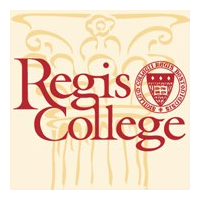What do they do?
Provide radiation therapy to patients as prescribed by a radiation oncologist according to established practices and standards. Duties may include reviewing prescription and diagnosis; acting as liaison with physician and supportive care personnel; preparing equipment, such as immobilization, treatment, and protection devices; and maintaining records, reports, and files. May assist in dosimetry procedures and tumor localization.
Also known as:
Computed Tomography Simulation Therapist (CT Simulation Therapist), Dosimetrist, Medical Dosimetrist, Radiation Therapist (RT), Radiation Therapy Technologist (RTT), Registered Radiation Therapist, Staff Radiation Therapist
-
5.8%
Change
Ranks #36 in job growth rate30Job Openings
Ranks #20 in net job growth
-
Ohio State University-Main Campus
Columbus, OH
-
Regis College
Weston, MA
-
Kent State University at Salem
Salem, OH
-
Commonwealth University of Pennsylvania
Bloomsburg, PA
-
Southern Illinois University-Carbondale
Carbondale, IL
Looking for colleges that offer a specific major? Use the College Match Tool to find your best-matched schools and discover your estimated Net Price!
- Doctorate or Professional Degree (4%)
- Master's degree (10%)
- Bachelor's degree (45%)
- Associate's degree (29%)
- Some college, no degree (6%)
- High school diploma equivalent (6%)
- Less than high school diploma (<1%)
People in this career often have these skills:
- Reading Comprehension - Understanding written sentences and paragraphs in work-related documents.
- Active Listening - Giving full attention to what other people are saying, taking time to understand the points being made, asking questions as appropriate, and not interrupting at inappropriate times.
- Critical Thinking - Using logic and reasoning to identify the strengths and weaknesses of alternative solutions, conclusions, or approaches to problems.
- Social Perceptiveness - Being aware of others' reactions and understanding why they react as they do.
- Operations Monitoring - Watching gauges, dials, or other indicators to make sure a machine is working properly.
People in this career often know a lot about:
- Customer and Personal Service - Knowledge of principles and processes for providing customer and personal services. This includes customer needs assessment, meeting quality standards for services, and evaluation of customer satisfaction.
- English Language - Knowledge of the structure and content of the English language including the meaning and spelling of words, rules of composition, and grammar.
- Medicine and Dentistry - Knowledge of the information and techniques needed to diagnose and treat human injuries, diseases, and deformities. This includes symptoms, treatment alternatives, drug properties and interactions, and preventive health-care measures.
- Physics - Knowledge and prediction of physical principles, laws, their interrelationships, and applications to understanding fluid, material, and atmospheric dynamics, and mechanical, electrical, atomic and sub-atomic structures and processes.
- Mathematics - Knowledge of arithmetic, algebra, geometry, calculus, statistics, and their applications.
- Education and Training - Knowledge of principles and methods for curriculum and training design, teaching and instruction for individuals and groups, and the measurement of training effects.
- Computers and Electronics - Knowledge of circuit boards, processors, chips, electronic equipment, and computer hardware and software, including applications and programming.
- Therapy and Counseling - Knowledge of principles, methods, and procedures for diagnosis, treatment, and rehabilitation of physical and mental dysfunctions, and for career counseling and guidance.
- Psychology - Knowledge of human behavior and performance; individual differences in ability, personality, and interests; learning and motivation; psychological research methods; and the assessment and treatment of behavioral and affective disorders.
- Biology - Knowledge of plant and animal organisms, their tissues, cells, functions, interdependencies, and interactions with each other and the environment.
People in this career often have talent in:
- Oral Comprehension - The ability to listen to and understand information and ideas presented through spoken words and sentences.
- Oral Expression - The ability to communicate information and ideas in speaking so others will understand.
- Problem Sensitivity - The ability to tell when something is wrong or is likely to go wrong. It does not involve solving the problem, only recognizing that there is a problem.
- Written Comprehension - The ability to read and understand information and ideas presented in writing.
- Written Expression - The ability to communicate information and ideas in writing so others will understand.
- Information Ordering - The ability to arrange things or actions in a certain order or pattern according to a specific rule or set of rules (e.g., patterns of numbers, letters, words, pictures, mathematical operations).
- Deductive Reasoning - The ability to apply general rules to specific problems to produce answers that make sense.
- Arm-Hand Steadiness - The ability to keep your hand and arm steady while moving your arm or while holding your arm and hand in one position.
- Near Vision - The ability to see details at close range (within a few feet of the observer).
- Speech Clarity - The ability to speak clearly so others can understand you.
People in this career often do these activities:
- Position patients for treatment or examination.
- Operate diagnostic or therapeutic medical instruments or equipment.
- Administer cancer treatments.
- Protect patients or staff members using safety equipment.
- Verify accuracy of patient information.
- Adjust settings or positions of medical equipment.
- Enter patient or treatment data into computers.
- Examine medical instruments or equipment to ensure proper operation.
- Monitor patient conditions during treatments, procedures, or activities.
- Inform medical professionals regarding patient conditions and care.
- Explain medical procedures or test results to patients or family members.
- Interact with patients to build rapport or provide emotional support.
- Maintain medical facility records.
- Examine patients to assess general physical condition.
- Fabricate medical devices.
- Develop medical treatment plans.
- Calculate numerical data for medical activities.
- Process x-rays or other medical images.
- Operate diagnostic imaging equipment.
- Schedule patient procedures or appointments.
- Assist healthcare practitioners during examinations or treatments.
- Train medical providers.
- Supervise patient care personnel.
- Prepare medications or medical solutions.
- Sterilize medical equipment or instruments.
This page includes data from:

 Occupation statistics: USDOL U.S. Bureau of Labor Statistics Occupational Employment Statistics
Occupation statistics: USDOL U.S. Bureau of Labor Statistics Occupational Employment Statistics









